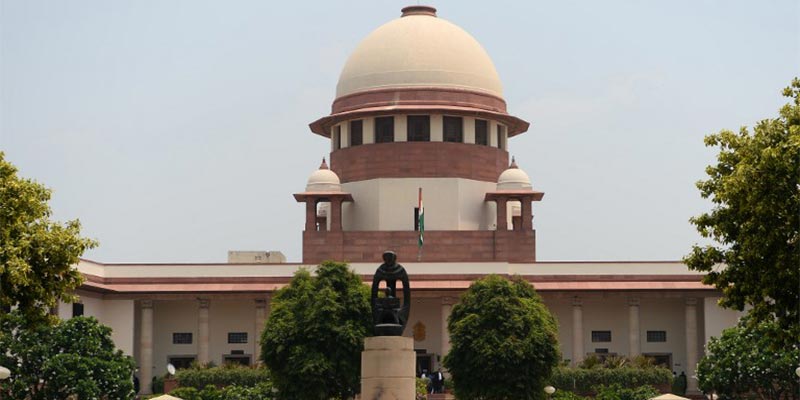- India
- Jul 30
- Kevin Savio Antony
Explainer - What is Lok Adalat?
• The Supreme Court of India has embarked on a groundbreaking initiative to address its mounting case backlog by launching a five-day Special Lok Adalat. The event, which began on July 29, coincides with the 75th anniversary of the apex court’s establishment and will run until August 3.
• The Special Lok Adalat involves seven benches of the Supreme Court, each comprising two Supreme Court judges, a senior advocate, and an advocate-on-record.
• To facilitate participation, the Registry has created dedicated video conference links for each court.
• Out of over 2,200 cases scheduled for the Lok Adalat, 911 are related to motor accident claims.
• The initiative aims to address a variety of disputes with potential for amicable settlement, including matrimonial and property disagreements.
• The Special Lok Adalat comes at a crucial time, as Law Minister Arjun Ram Meghwal recently informed Parliament that pending cases in the Supreme Court have increased by 35 per cent over the past five years, from 59,859 in 2019 to 80,765 by the end of 2023.
What is Lok Adalat?
• Meaning: “Lok Adalat” translates to people’s court and is founded on Gandhian principles.
• Historical Context: The Supreme Court of India recognises it as an ancient adjudicating system from India, still valid in modern times.
• Role in ADR: It is a key component of the Alternative Dispute Resolution (ADR) system, providing informal, affordable, and quick justice to common people.
• Origin: The first Lok Adalat camp was organised in Gujarat in 1982 as a voluntary, conciliatory agency without statutory backing.
• Statutory Status: Due to its growing popularity, Lok Adalat was given statutory status under the Legal Services Authorities Act, 1987. This Act outlines the organisation and functioning of Lok Adalats.
Types of Lok Adalats:
• Regular Lok Adalats are organised by the Legal Services Authorities/Committees as per the convenience/discretion of the state/district authorities, for settlement of both pre-litigation and post-litigation cases.
• National Lok Adalats are conducted quarterly for settlement of cases (both pre-litigation and post-litigation) in all the courts from the Supreme Court of India to the taluk courts on a single day.
• Permanent Lok Adalats are permanent establishments set up in most of the districts to provide compulsory pre-litigative mechanism for settlement of disputes related to public utility services.
• Mobile Lok Adalats are also organised in various parts of the country, which travel from one location to another to resolve disputes in order to facilitate the resolution of disputes through this mechanism.
Jurisdiction of Lok Adalat
A Lok Adalat has the authority to resolve and mediate a compromise between parties involved in:
• Any case currently pending before any court.
• Any matter within the jurisdiction of any court that has not yet been brought before the court.
A pending case can be referred to the Lok Adalat if:
• Both parties agree to settle the dispute in the Lok Adalat.
• One of the parties requests the referral of the case to the Lok Adalat.
• The court believes that the matter can be resolved by the Lok Adalat.
• For pre-litigation disputes, any party to the dispute can apply to have the matter referred to the Lok Adalat.
• Common matters handled by Lok Adalats include matrimonial and family disputes, criminal cases involving compoundable offenses, land acquisition cases, labor disputes, workmen’s compensation cases, and bank recovery cases. However, Lok Adalats do not have jurisdiction over cases involving non-compoundable offenses under any law.
Powers of Lok Adalat
• The Lok Adalat holds the same powers as a civil court under the Code of Civil Procedure (1908). Additionally, it has the authority to establish its own procedures for resolving disputes.
• All proceedings before a Lok Adalat are considered judicial proceedings under the Indian Penal Code (1860), and every Lok Adalat is deemed a Civil Court under the Code of Criminal Procedure (1973).
• The awards given by a Lok Adalat are equivalent to a decree of a civil court or an order from any other court and are final and binding on all parties involved. No appeals can be made against the awards of a Lok Adalat.
Benefits of Lok Adalat
• No Court Fees: If court fees have already been paid, they will be refunded if the dispute is settled in the Lok Adalat.
• Procedural Flexibility and Speed: Lok Adalats offer flexibility in procedures and faster resolution of disputes without the strict application of procedural laws.
• Direct Interaction: Parties can interact directly with the judge through their counsel, a feature not available in regular courts.
• Finality and Binding Nature: The award of a Lok Adalat is binding and holds the status of a civil court decree, and it is non-appealable, ensuring that disputes are resolved without delay.
(The author is a trainer for Civil Services aspirants.)

